Parents, This Daughter Of A Therapist Shared How They Spoke About Sex, And It’s So Important
Warning: Discussions of child sexual abuse.
It's been a few weeks since Quiet on Set: The Dark Side of Kids TV exposed the allegedly exploitative, toxic, and sexually abusive culture Nickelodeon's early-aughts child stars faced.

For many of the former child stars, it was the first time they opened up about the abuse they endured. This includes Drake Bell, who identified himself as the sexual abuse victim of Brian Peck, a former Nickelodeon dialogue coach who was arrested in 2003 on 11 charges, including lewd acts with a minor.
Amidst the conversation, Amelia Brock — a 33-year-old daughter of retired child sexual abuse therapist, Cleone Brock — shared on TikTok the importance of educating children about sex and body safety.
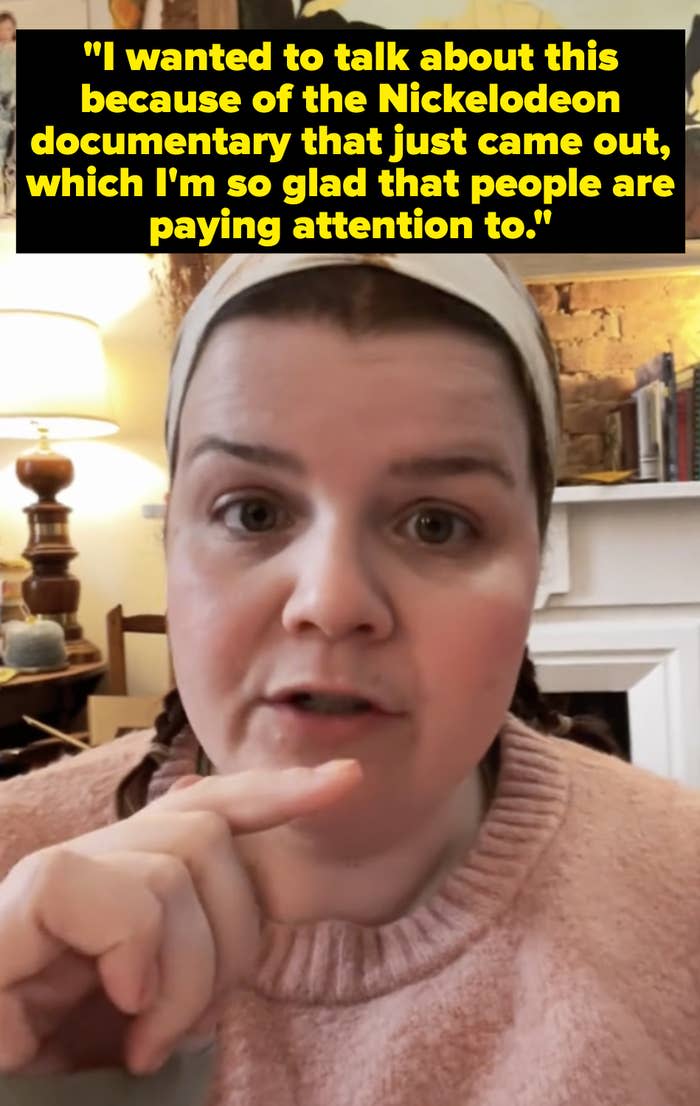
Amelia began, "I am the daughter of a therapist for victims of child sexual abuse. And I want to tell you about all the things that my mom did when I was growing up to educate me and prevent me from being in a situation where I'd be sexually abused."
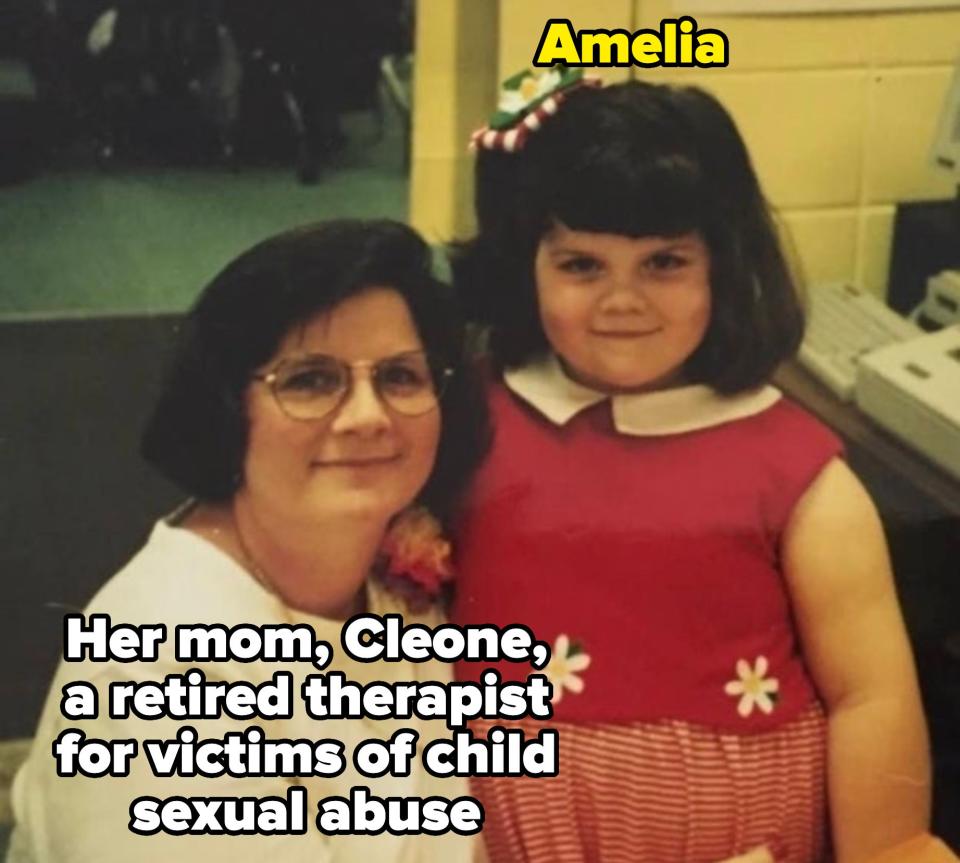
Of course, in child sexual abuse cases, children are victims, and it's NOT their job to stop abusers. However, Amelia and her mom emphasize that there are things that we as a culture can do so children can better comprehend what sex is, what situations are not OK, and that, no, they don't always have to comply with adults.
So, let's get into the five areas Amelia shared that we need to "tackle or disrupt" to be more effective in child sexual abuse prevention:
1. Access
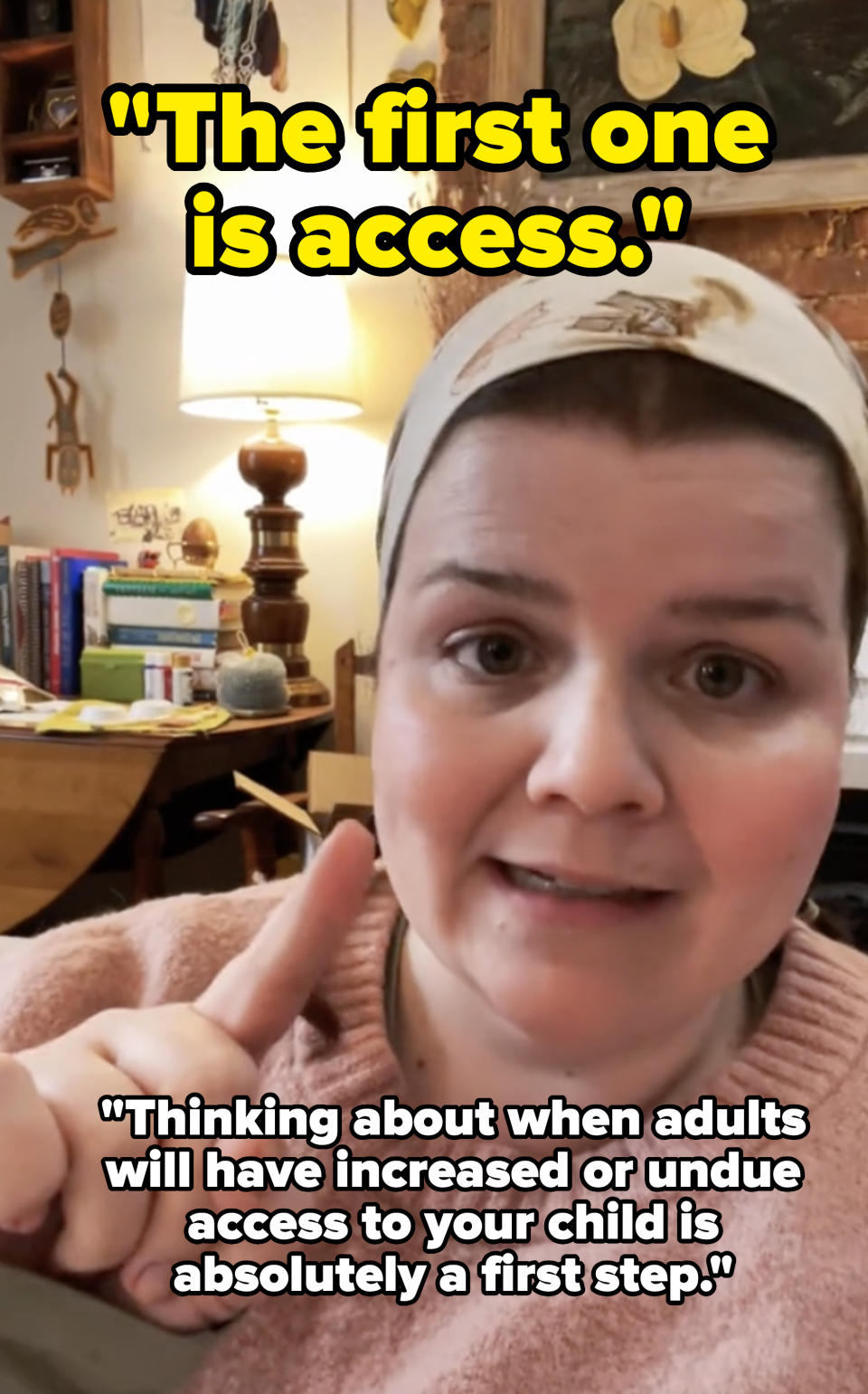
Amelia said, "The first one is access. This is the one I hear about the most on TikTok. You know, parents will say, 'I don't let my kid go to sleepovers.' Period. Total prevention slay! Love y'all, but we got to think beyond that."
Amelia said that thinking about when adults will have complete access to kids is essential, but she also admitted that this doesn't mean parents must restrict sleepovers completely.
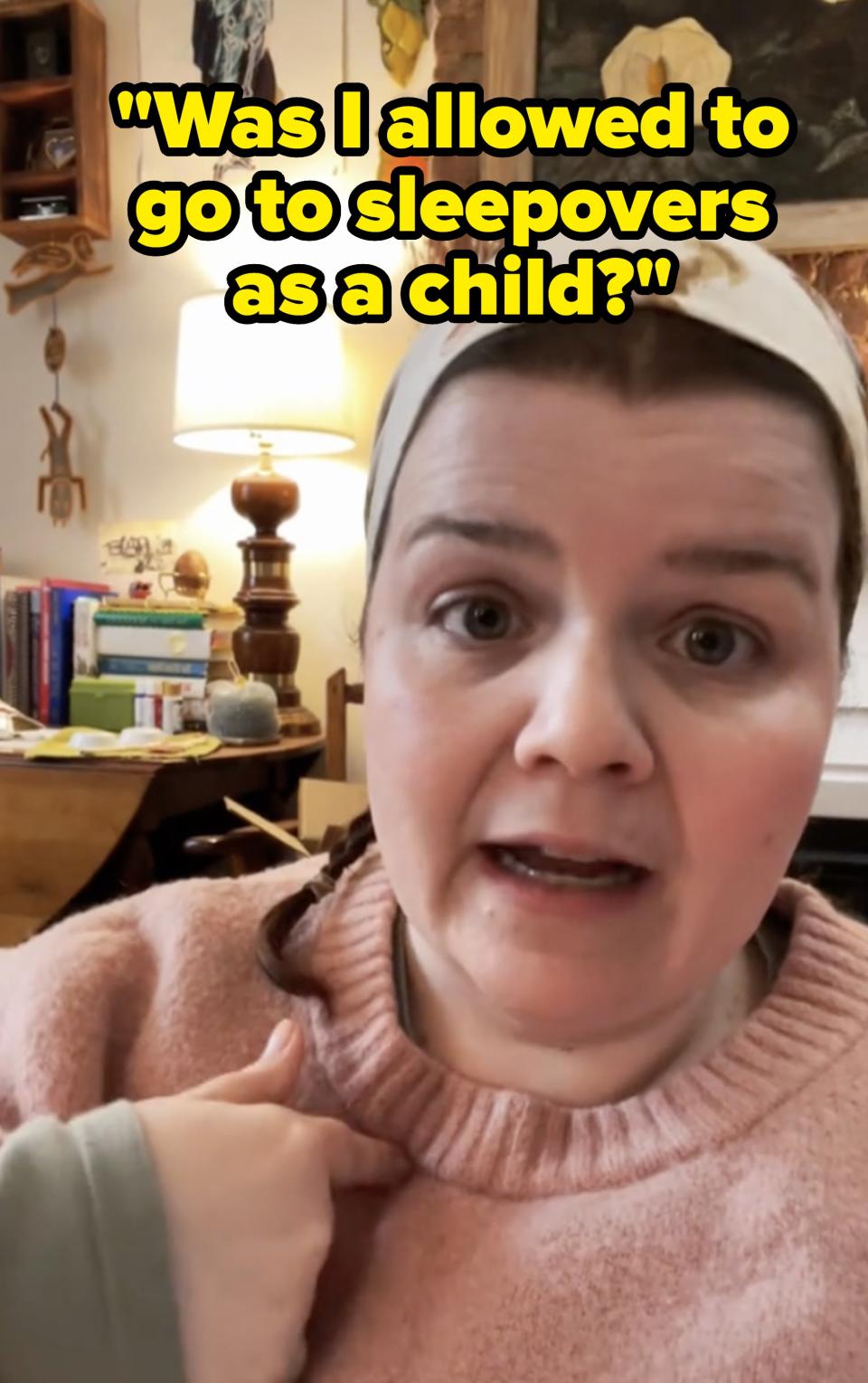
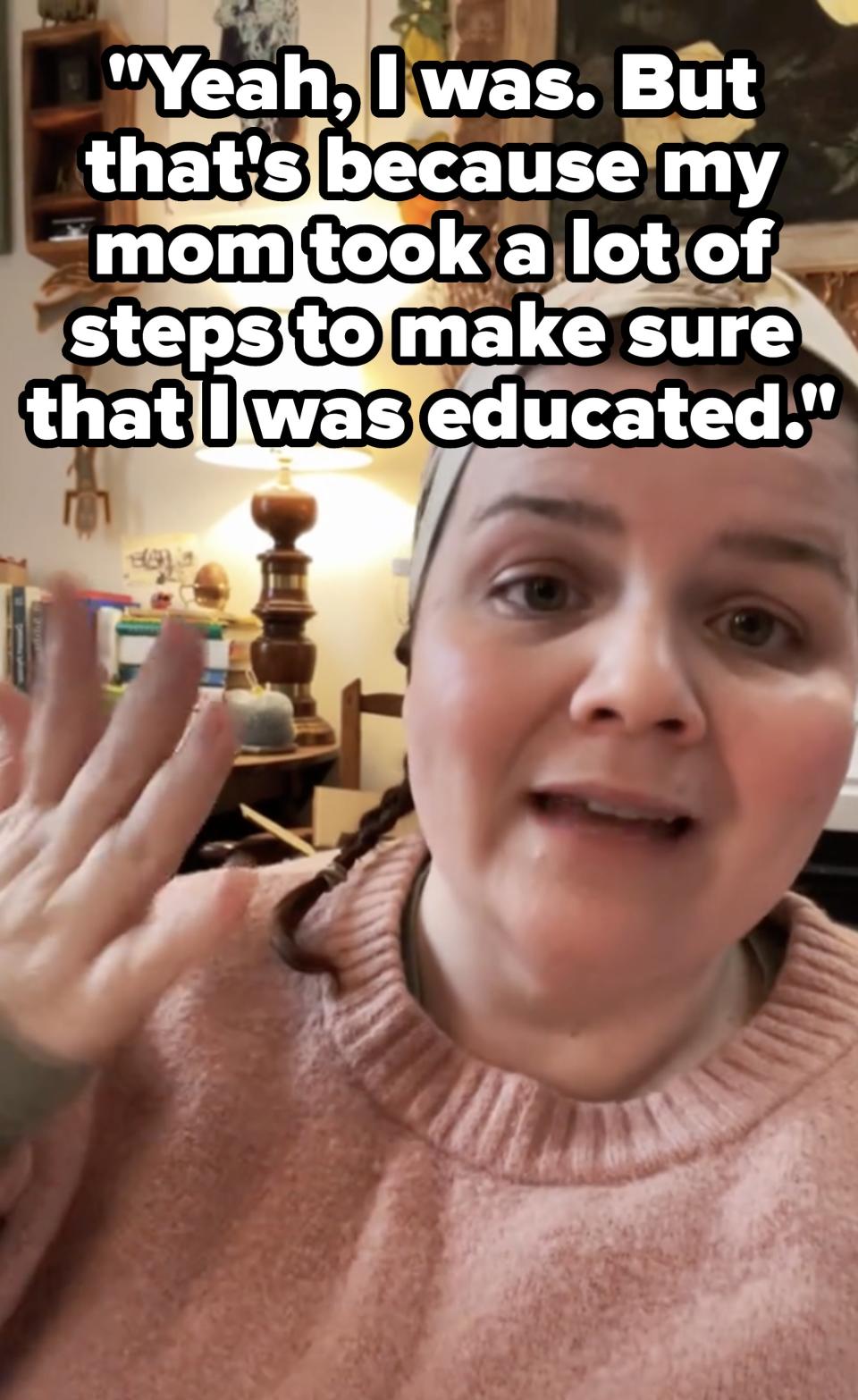
@abetok / Via tiktok.com
She said, "Thinking about when adults will have, you know, increased or undue access to your child is absolutely a first step." However, "Was I allowed to go to sleepovers as a child? Yeah, I was. But that's because my mom took a lot of steps to make sure that I was educated." This leads to Amelia's next point...the knowledge gap.
2. Knowledge gap
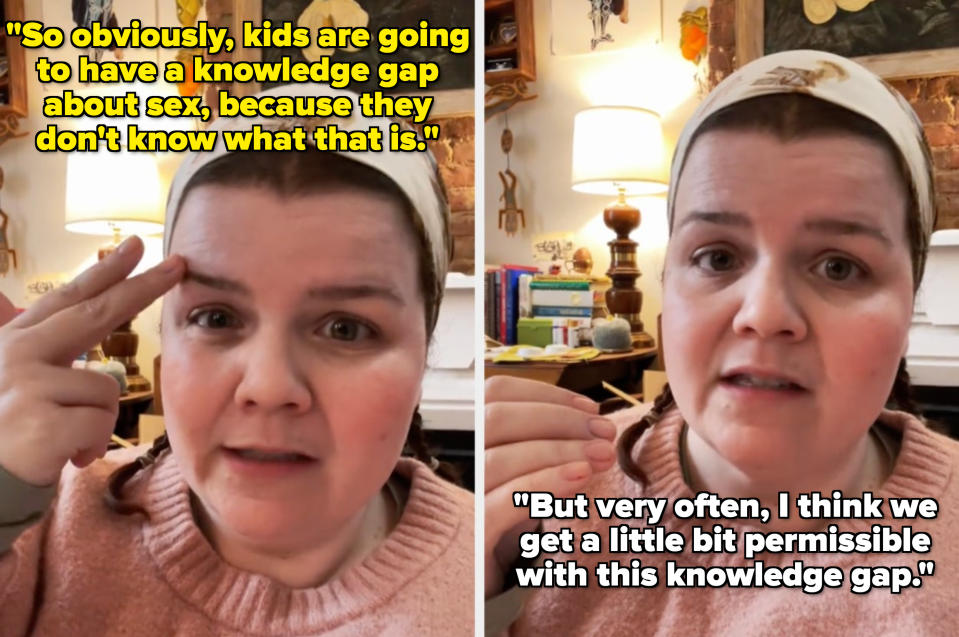
Amelia said, "Obviously, kids are going to have a knowledge gap about sex," but very often, parents become a bit too comfortable in this knowledge gap because it's uncomfortable talking about bodies with their kids. She added, "And so they don't even talk to them about their own body, genitalia, or anatomy at all."
Amelia continued, "The way that my mom tackled this was from the time I was little, she had a picture book about sex that taught me about anatomy, about genitals, about what sex was. Obviously, it was age-appropriate; it was not graphic. And it was to teach me about what these things were."
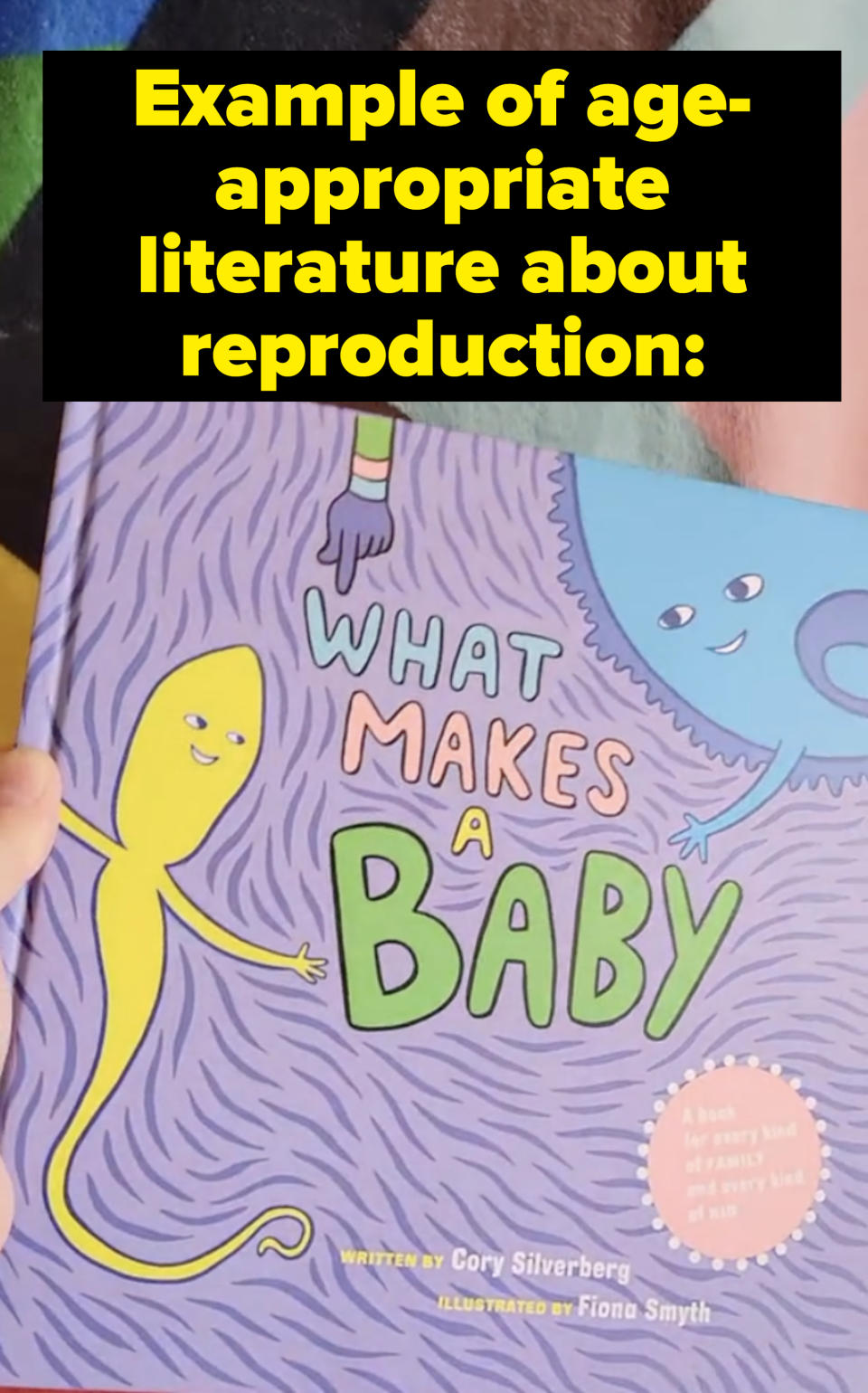
"Why is that important? Because very often, abusers are lying to kids about everything under the sun, like, 'I'm gonna kill your whole family, everyone's gonna hate you, everyone's gonna say that this is your fault, you wanted this,' but they also might even be lying about the fact that what they are doing is sex."
She continued, "But how is a child to know that? An adult is telling them to participate in this activity and forcing them to."
"So kids need to know what sex is, and that it's not appropriate for them to participate in it...that it's not appropriate for an adult to touch their body in certain ways, and it should never make them feel bad or ashamed. And that if it does, then that's something that needs to be told to mom or dad."
3. Disrupting silence
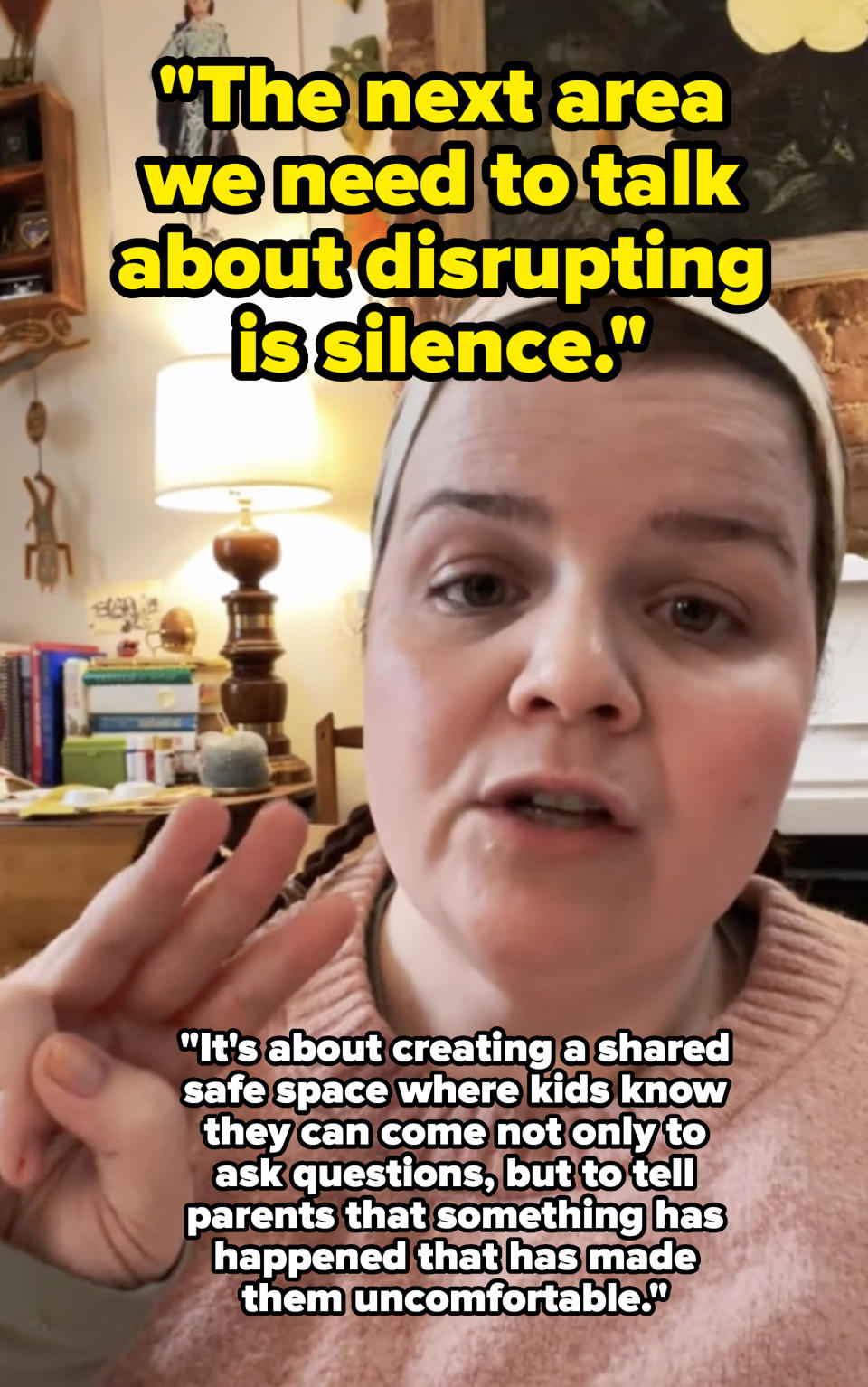
Amelia said, "The next area we need to talk about disrupting is silence. That's part of what disrupting the knowledge gap and educating your child is about. It's about creating a shared safe space where kids know they can come not only to ask questions, but to tell parents that something has happened that has made them uncomfortable."
"It always shocks me how many parents in passing will be like, 'Don't ever let anybody touch you. Tell me, right?' And it's like, what's the kid supposed to feel? You're, like, halfway yelling at them, right? That's not a conversation."
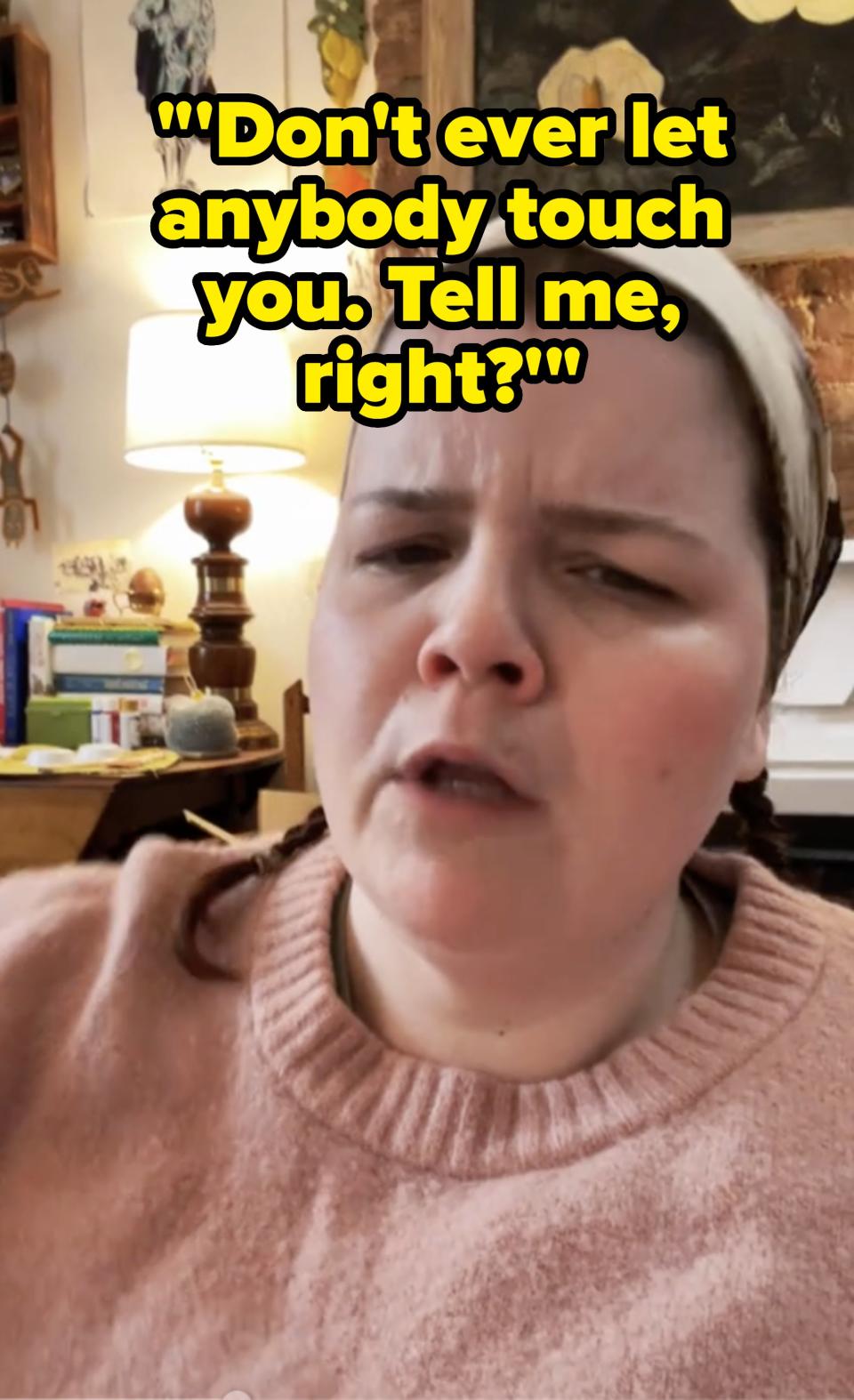
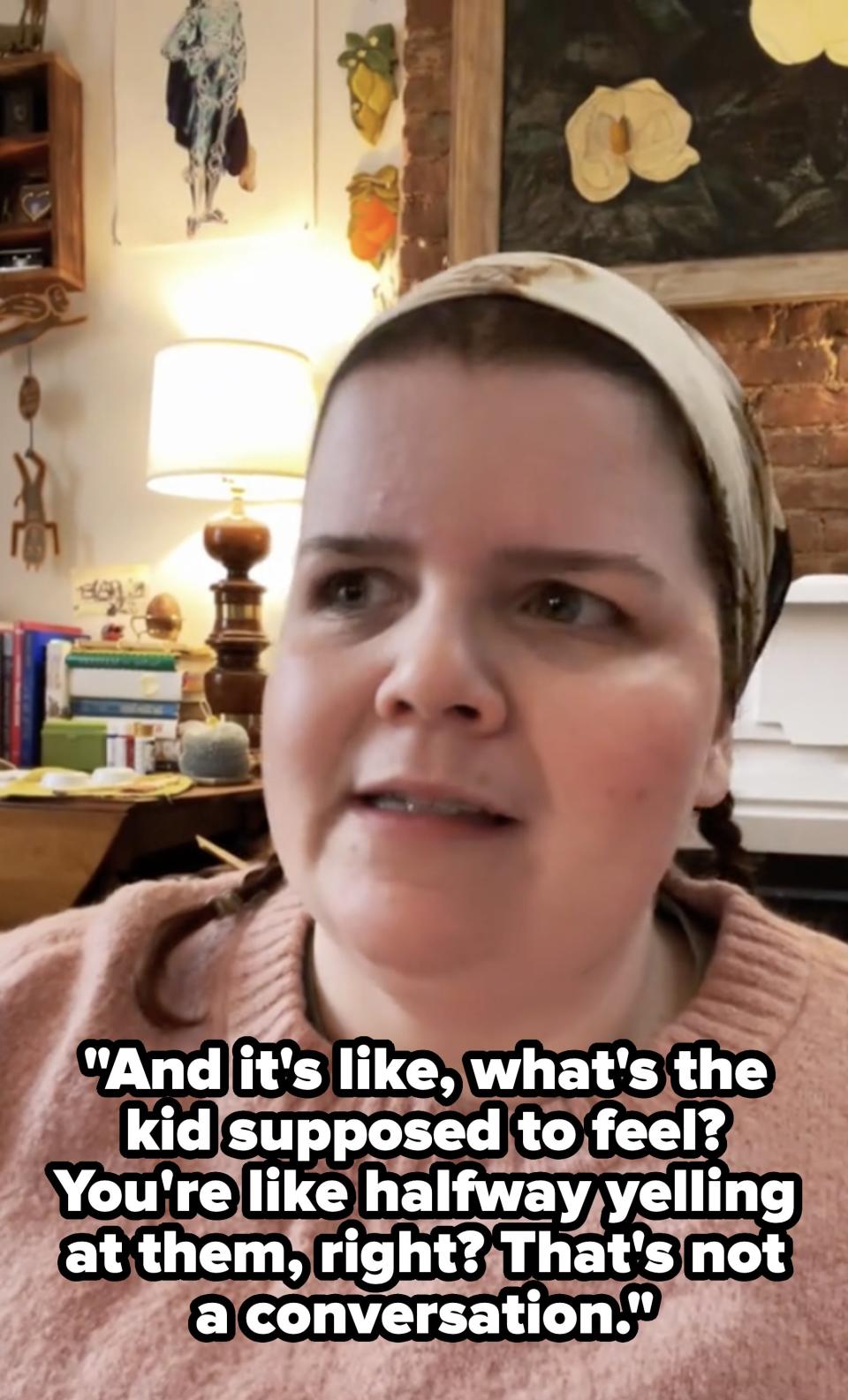
@abetok / Via tiktok.com
Amelia continued, "You need to be setting up a continuous and recurring space in which you're having open and honest conversations, answering questions, no anger, whatsoever. Like, totally, the child should know that they can say or ask anything, and that they will not be met with anger or fear. They will be met with truth, kindness, and care."
Amelia admitted, "If you do not set up that space with your child, [and] something happens to them like sexual abuse, why would they tell you about it? You haven't proven yourself to them as a trusted person in their life who's taking care of their emotional well-being."
"And until you prove that, then it's very unlikely that your child is going to confide in you in that way. So that is something that needs to be happening over and over again. And it needs to be proven through action, not just words. Not saying you can tell me anything; prove it to them."
4. Disrupting shame
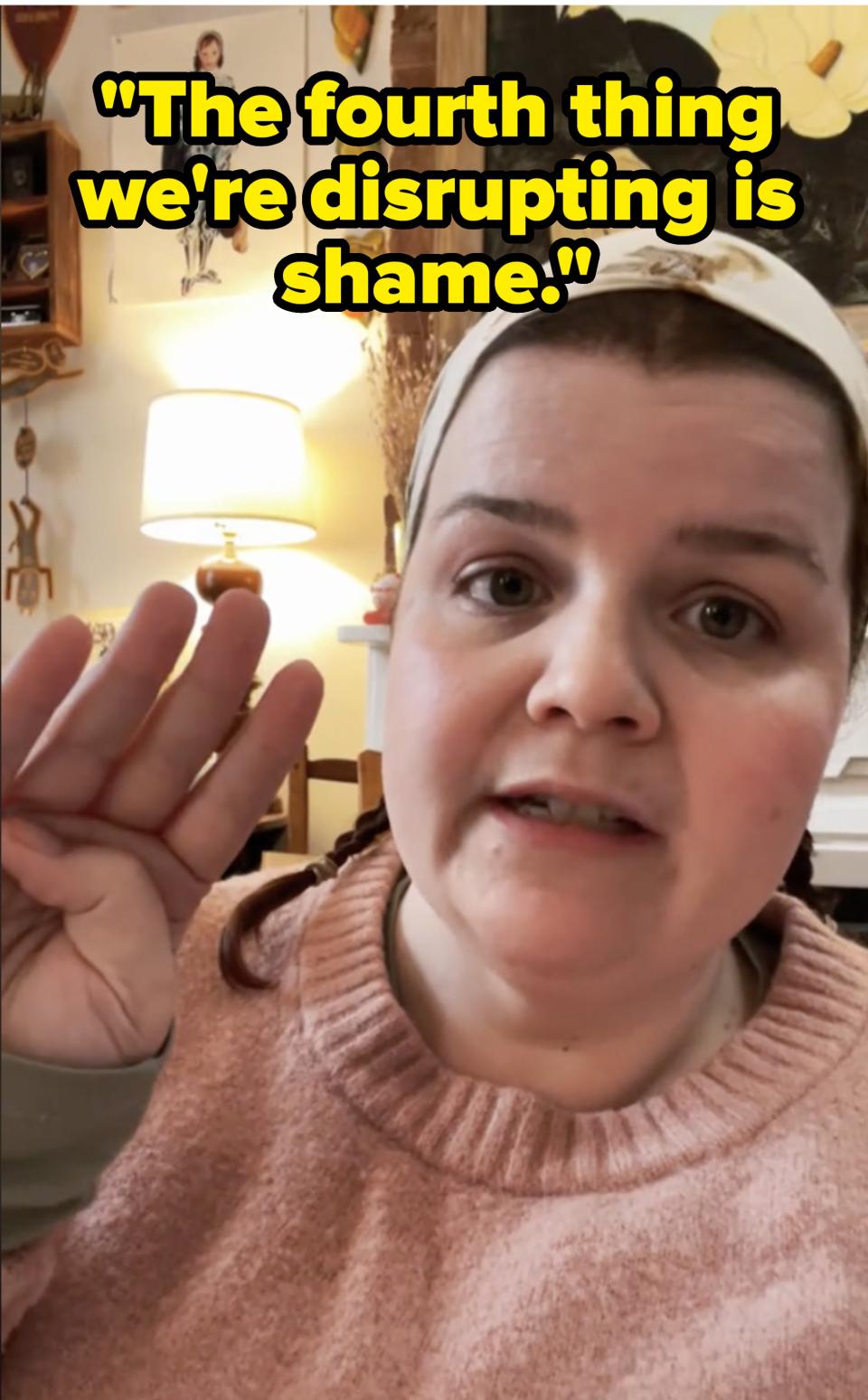
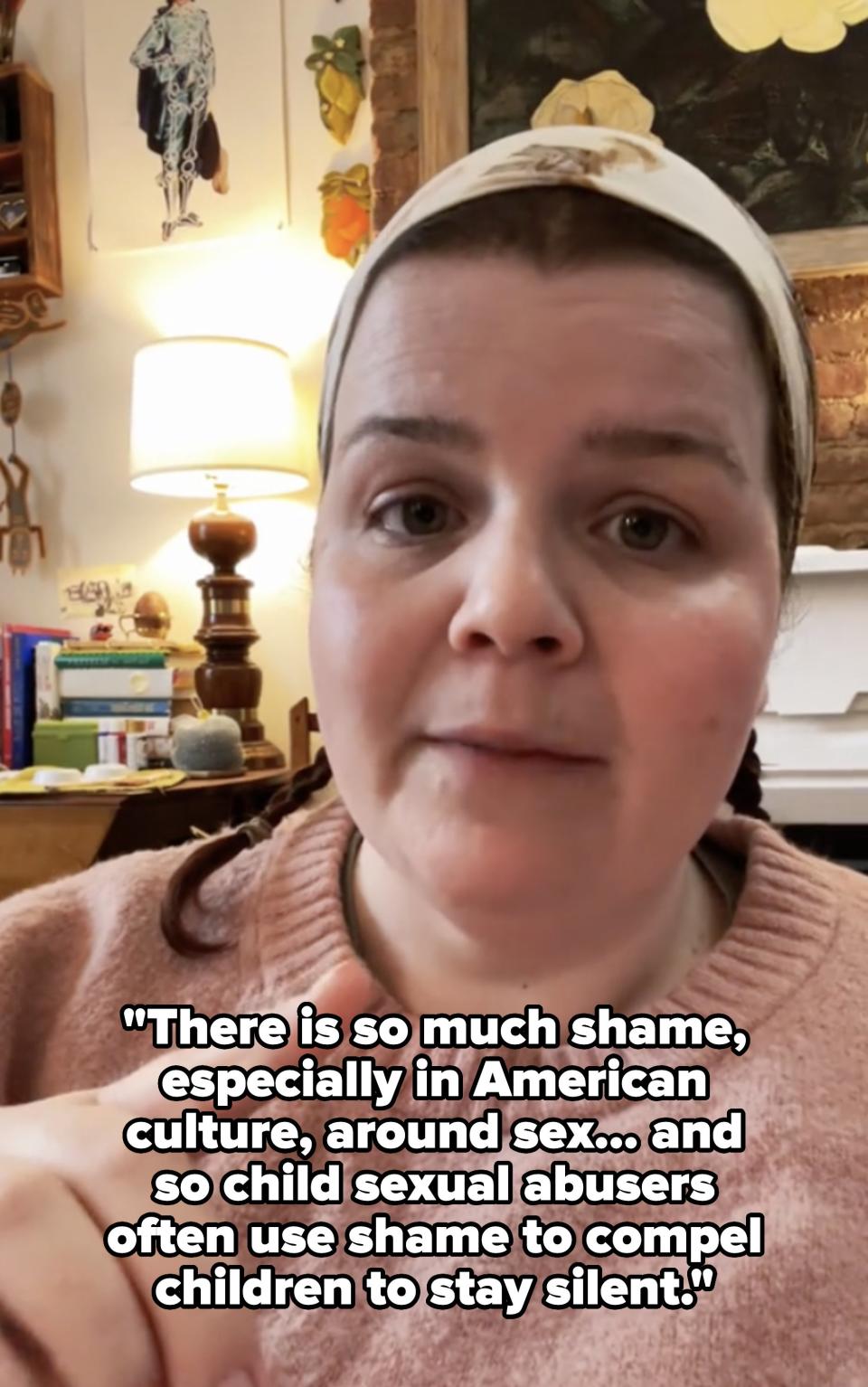
@abetok / Via tiktok.com, @abetok
Amelia said the fourth thing she wants to see disrupted is shame, which can keep victims quiet. "There is so much shame, especially in American culture around sex. We are fundamentally a puritanical culture. And so child sexual abusers often use shame to compel children to stay silent. You need to disrupt that shame, [because abusers can] activate a kid's internalized sense of shame to keep them quiet."
She continued, "Part of that, too, in my conversations with my mom, was her taking me through exactly what would happen if I ever came to her and said, 'This has happened to me,' or, 'This adult made me feel uncomfortable,' or, 'This adult tried to touch me.'"
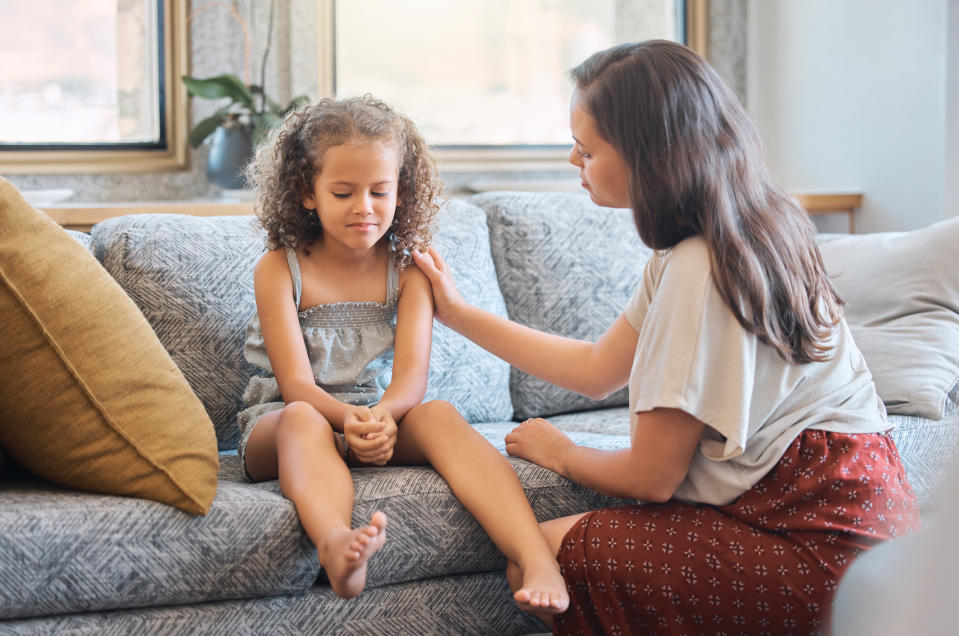
"She would say, you know, once you tell me, we will take this action. We will call the police. We will talk to the police and tell them what happened to you. No one will be mad at you. It is the adult's fault...you have done nothing wrong, that it is them doing something bad. And we need to tell someone about that so that they don't hurt other kids."
Amelia said, "I knew that, you know, I knew in my core if something like that were to happen to me, my mom would respond to me with love and care because she had proven it."
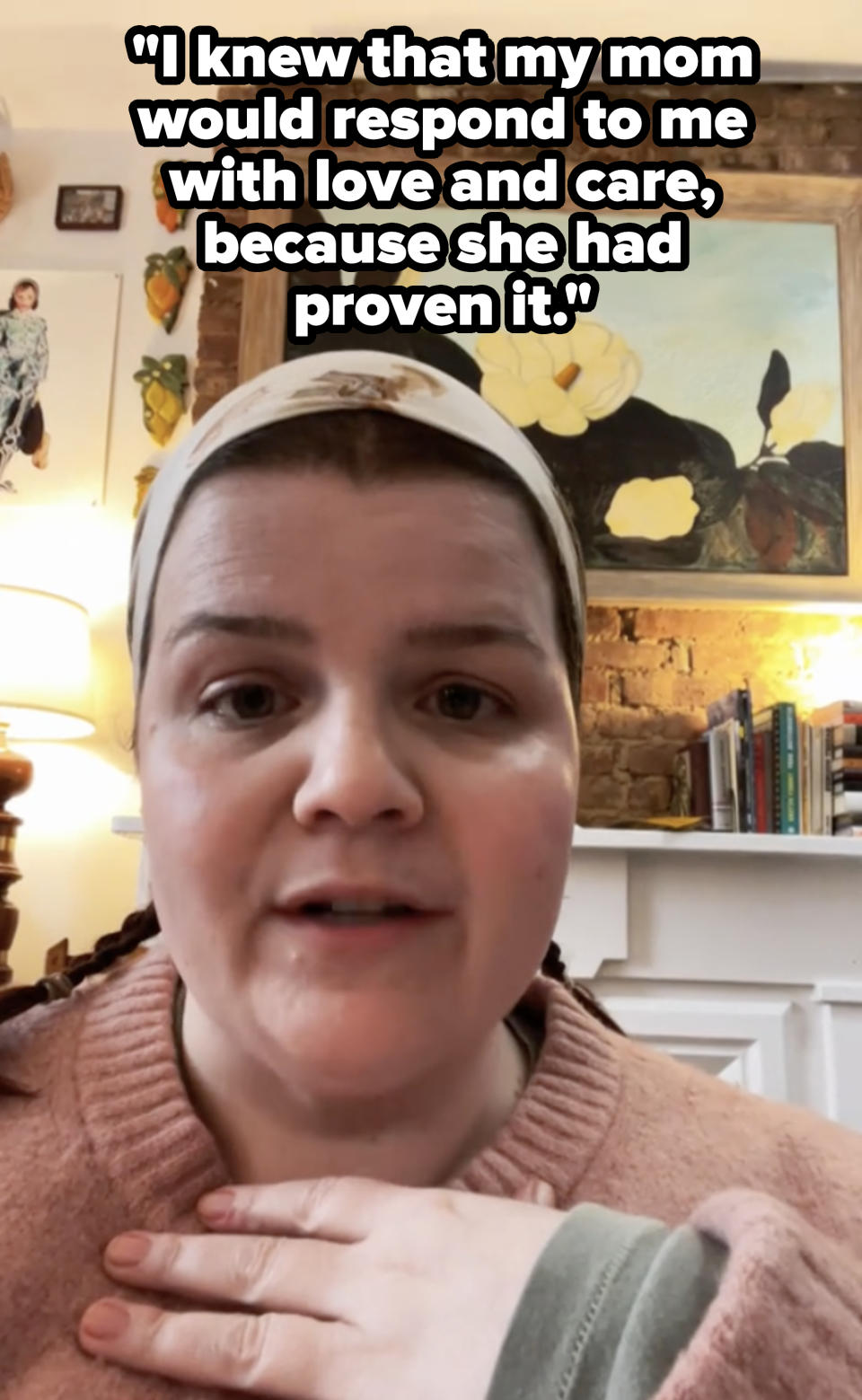
5. Compliance
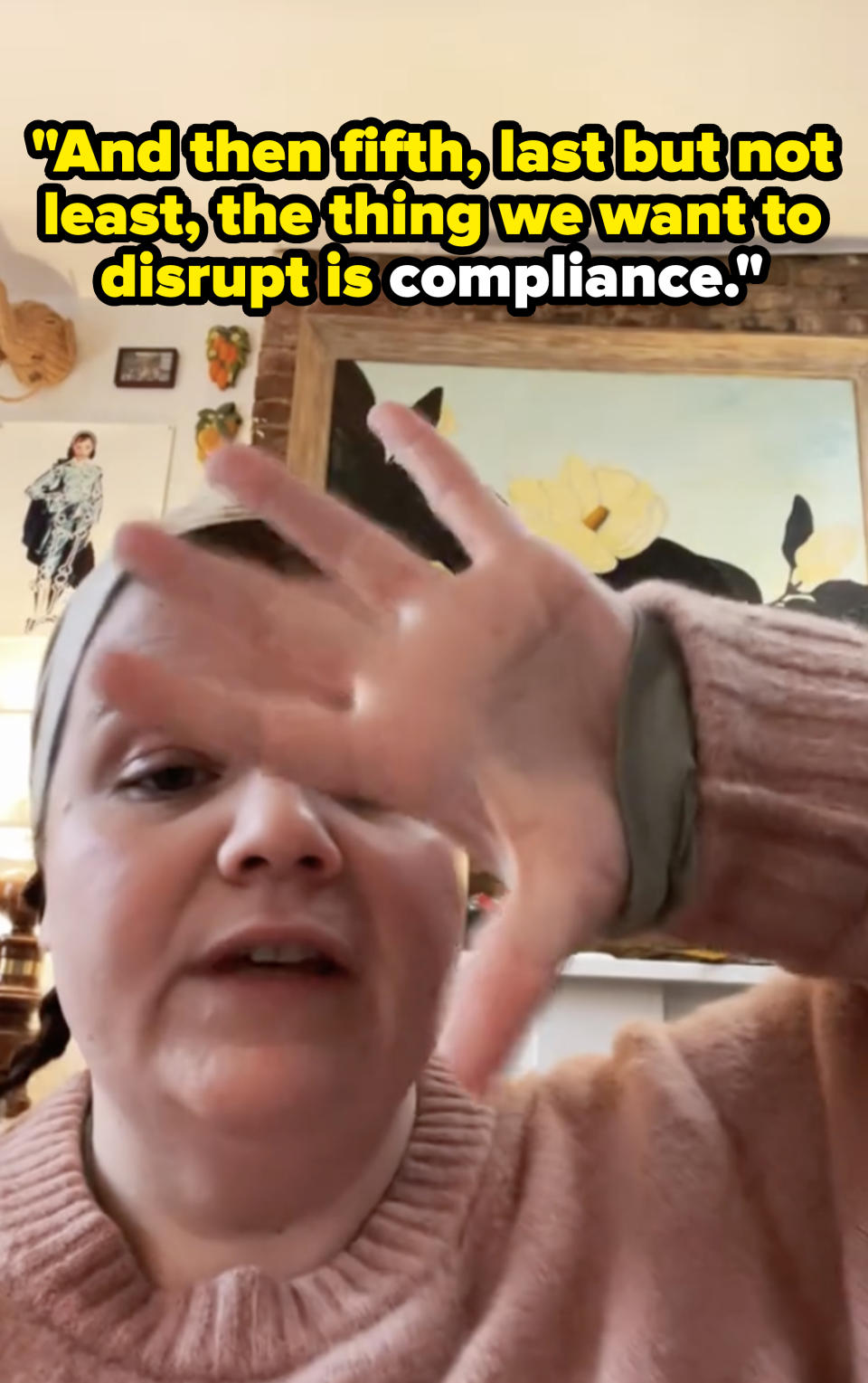
"And then fifth, last but not least, the thing we want to disrupt is compliance," Amelia said. She explained that it's important that kids know they do not always have to be compliant with adults (which is often what we teach in America), particularly in harmful situations.
She said, "This is not putting the onus on the child to get out of a situation in which an adult is trying to harm them, but it is letting them know that they have inside feelings that can give their brain information about when they might be in a situation that is not good for them, or where harm may occur."
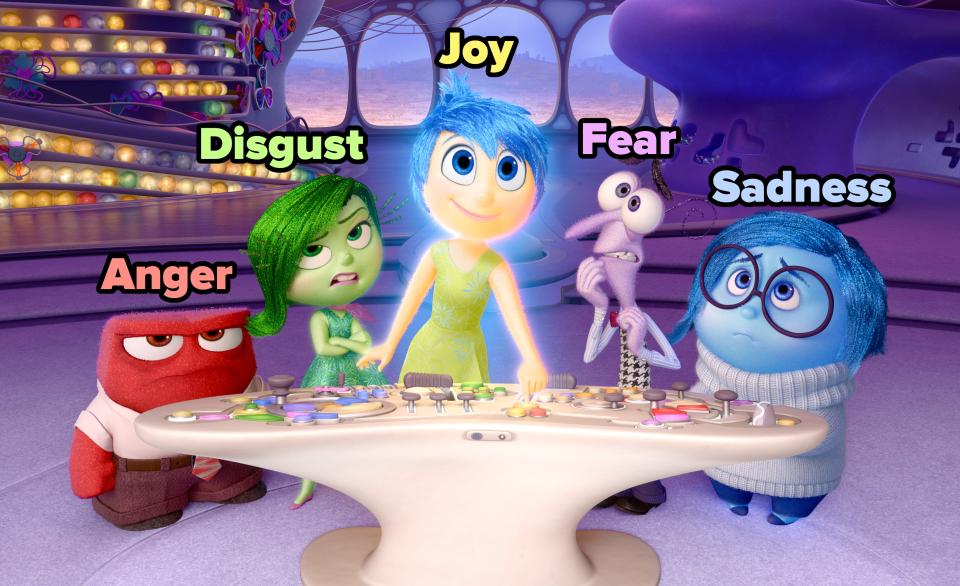
She continued, "Teaching a kid that it's ok to listen to those feelings and not be compliant. And reiterating that in a situation where they might be being put in harm, it is okay and acceptable to kick, run, punch, leave the room, like whatever it takes."
Amelia clarified, "Obviously, you know, have that conversation the way that's most appropriate with your child. But so much of what we tell kids is, 'Sit your ass in your seat and be good in school and pay attention to the adults and do everything they say.' That is a very, very harmful construct, unless you give nuance with your child."
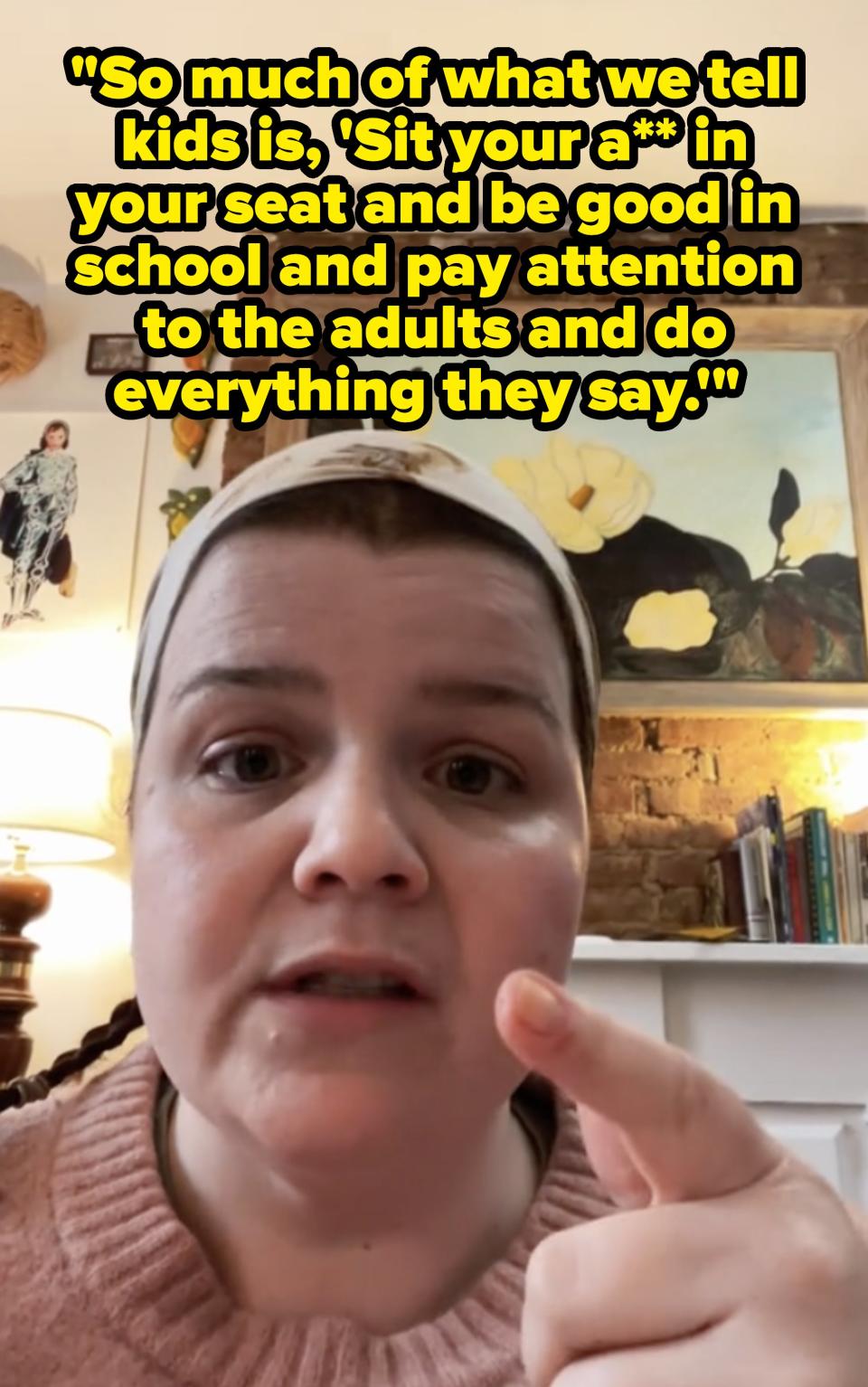
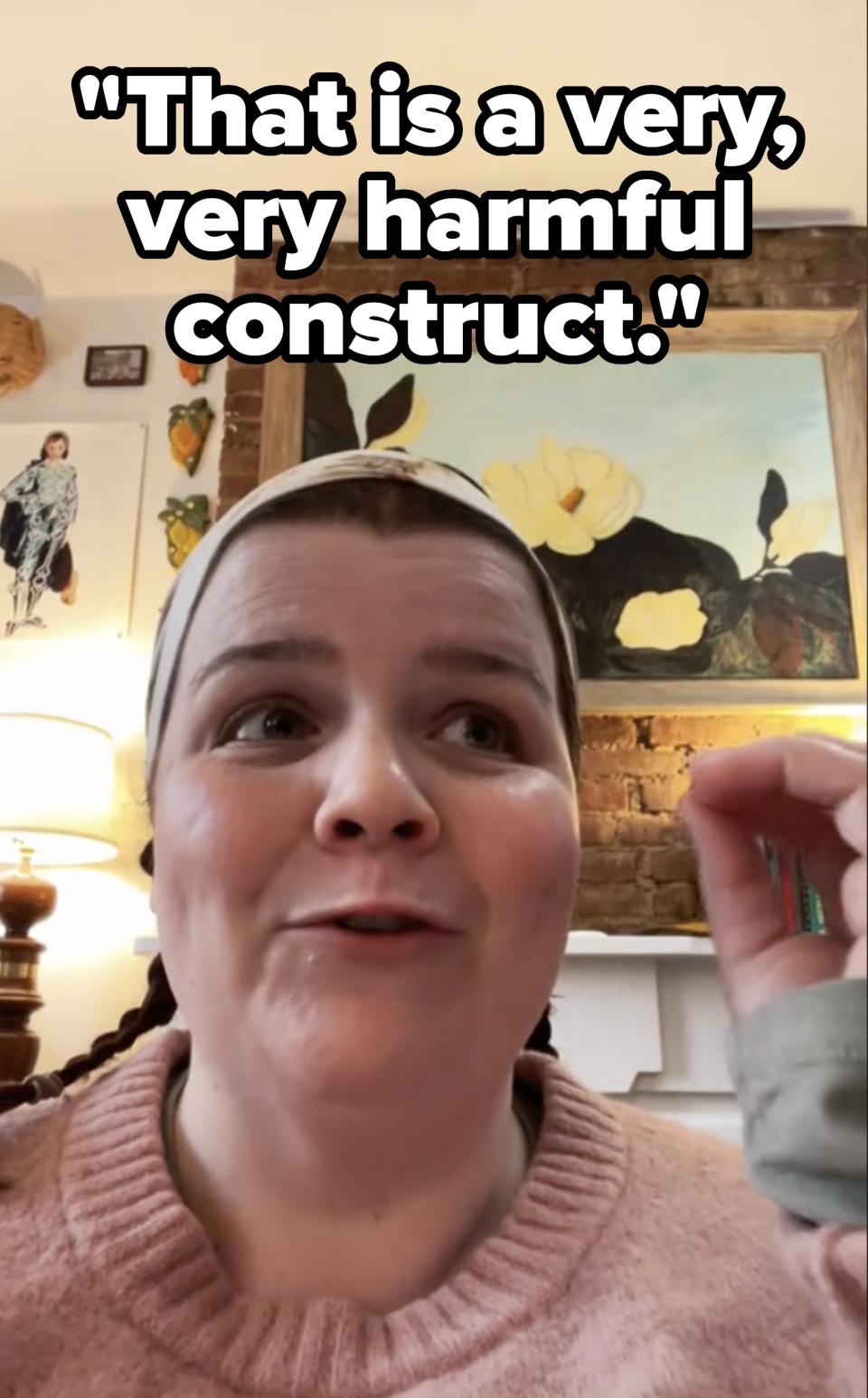
@abetok / Via tiktok.com
"The messaging they're hearing the entire time they're growing up is, 'Adults are God. Everything that they say, you must do. If you don't do what they say, you are bad. You are a bad child and you're behaving badly.'"
"So, [it's about] disrupting that [compliance] framework and letting a child know that they have agency, and especially that they have the agency to listen to what their body and their feelings are telling them, and to listen to this information that their parents have been telling them, and to leave situations that they don't feel comfortable with. To say, 'I want my mom.' To call mom. To bring a parent into it. That is all really, really important."
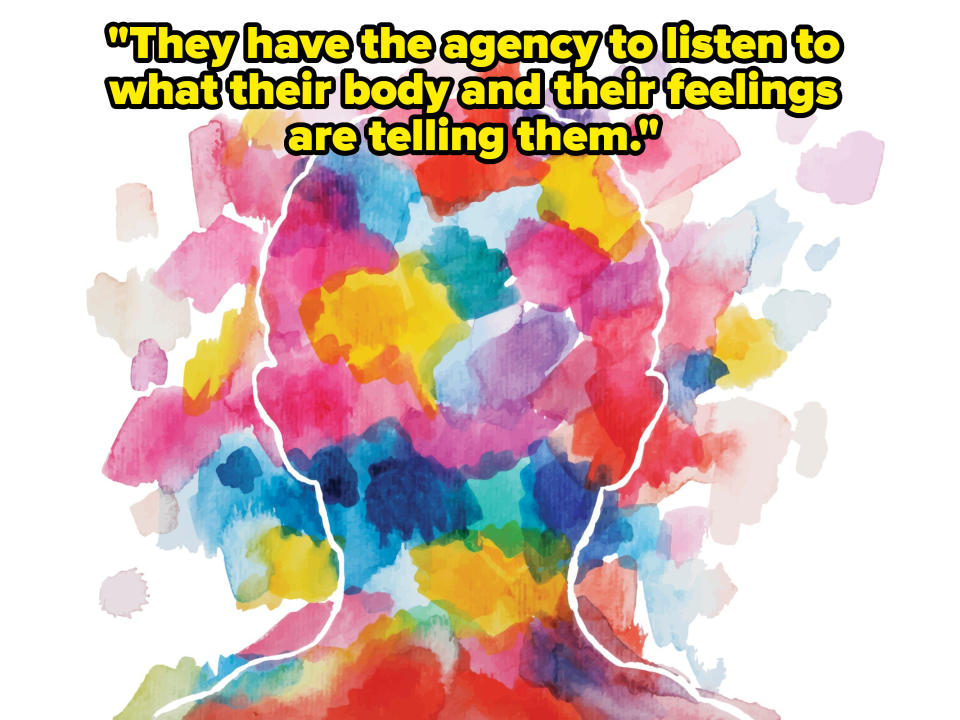
As for why she started sharing this in the first place, Amelia said Quiet on Set was a huge catalyst, but she wanted to hear more conversations about prevention, which she had direct experience with. Amelia told BuzzFeed, "On TikTok, I've seen so many brave personal accounts about enduring child sexual abuse. But I haven't seen many videos about how to educate your child and have preventative conversations."
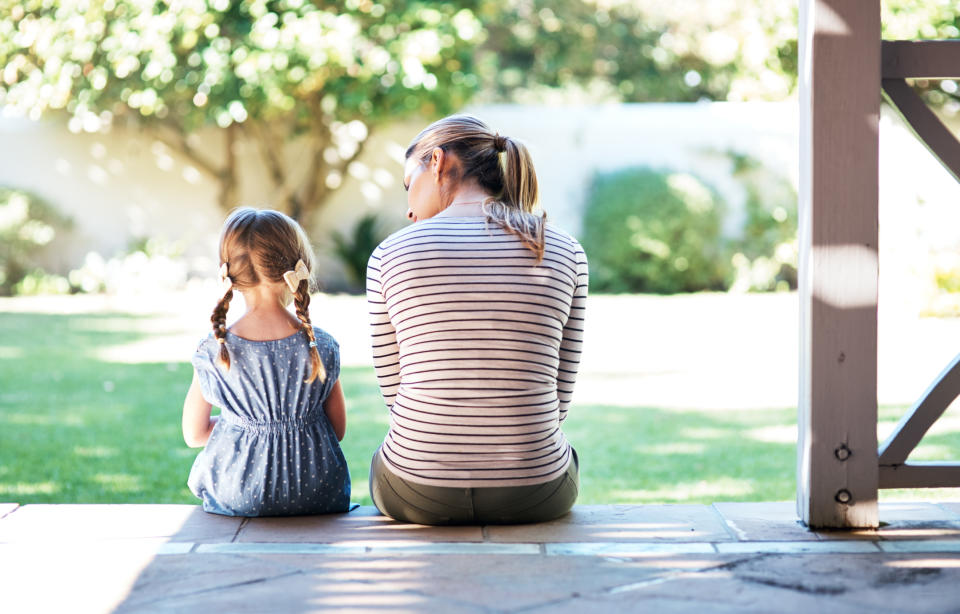
"With Quiet on Set all over social media and in headlines, I knew that a lot of parents were feeling worried about their kids' safety but unsure what to do about it or where to start. I thought — I should share everything my mom did for me. If my experience can help one person, making the TikTok will be worth it."
And that it did — since sharing her video, Amelia has received an outpour of support, with many commenters thankful to see someone speaking about this.
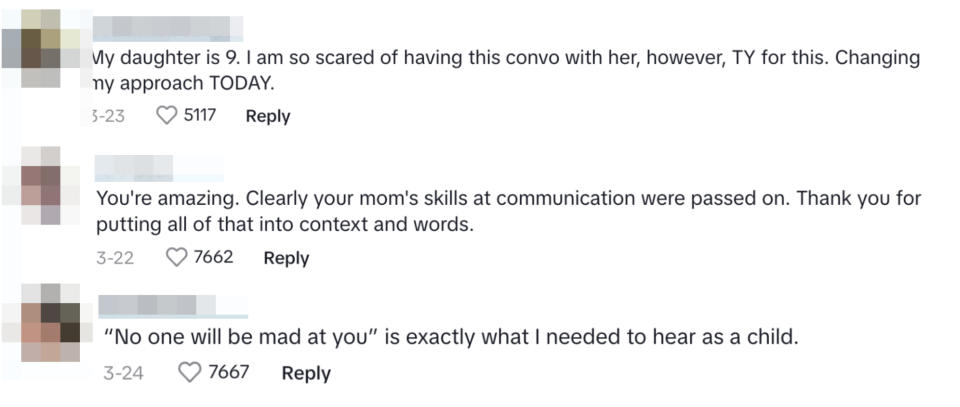
She told BuzzFeed, "I've had so many parents commenting that they'll start these conversations with their kids, which I love to see."
She also said that there have been many people commenting about their own experiences with child sexual assault — particularly how they wish a parent or guardian had listened to them when they spoke up about their abuse. "It breaks my heart, but I'm glad to see people talking about it. We have to keep disrupting the culture of silence around child abuse."
And if you're coming across this information for the first time, you might be wondering how even to begin these conversations with your kids. So, we spoke with Amelia and her mom, Cleone, to better understand how to broach these conversations.
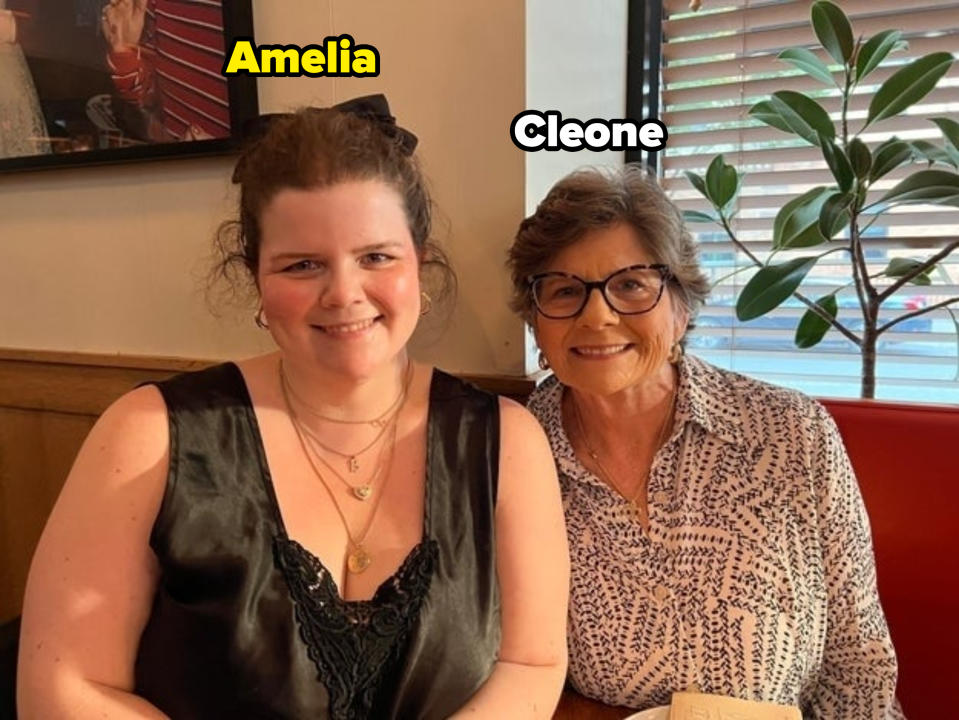
Cleone Brock is a retired Licensed Professional Counselor (LPC) from Alabama who worked with victims of child sexual abuse from 2006 until her retirement in 2023. She was also the executive director of a Child Advocacy Center that counseled victims and their families, assisted in reporting their abuse and telling their stories, and advocating for victims in court, if necessary.
Cleone began, "The first step really depends on your child's age. Ask questions to see what they already know. You don't have to start with a full anatomy lesson or explaining sex. Ask your child if they know what areas are private on a person's body. Ask if anyone has ever tried to touch their private areas, talked to them about those areas, asked to take photos, or has even made them feel uncomfortable on these topics."
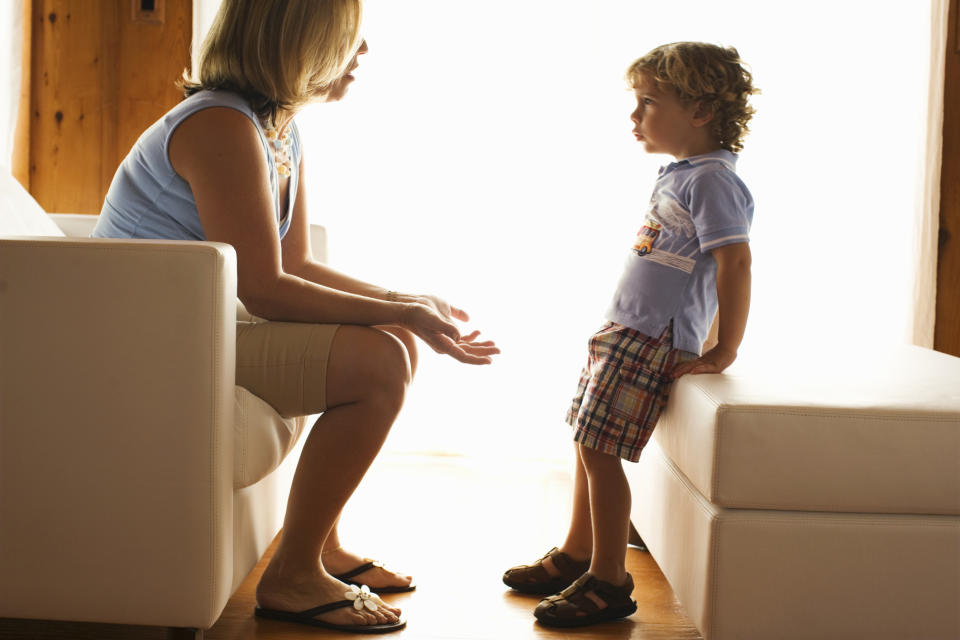
"Talk to them about what to do if that does happen — they need to tell a trusted grown-up what happened and keep telling people until someone believes them. Consider conversational role play where they practice the behaviors of yelling, screaming, kicking, or doing whatever it takes to get out of a sexual abuse situation. Underscore repeatedly that they will never be in trouble for reporting abuse."
Cleone continued, "Teach your child about healthy secrets vs. unhealthy secrets — a surprise birthday party is a healthy secret that doesn't hurt anyone, and we feel good inside when we keep that secret. A friend telling them that someone has touched them inappropriately is not a healthy secret, and keeping that secret makes us feel bad inside. Underscore that telling a trusted adult about unhealthy secrets is important because it's the only way a bad situation can be stopped."
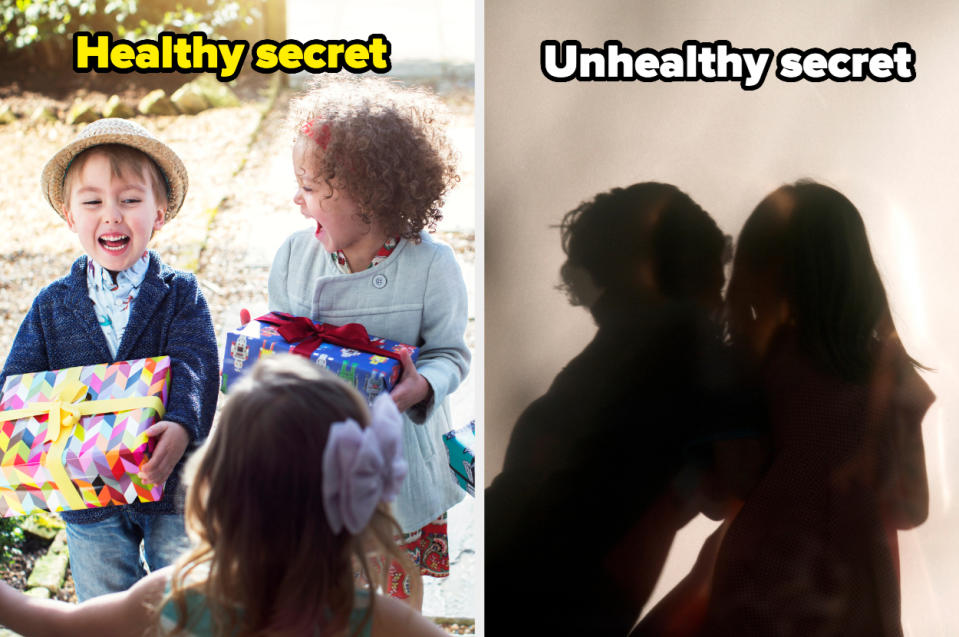
"The key here is creating a space where you and your child can have open dialogue, and they don't feel scared to talk to you, which is a common silencing tactic used by abusers. Ultimately, your child needs to know that you will always answer their questions truthfully, and they will never be in trouble for confiding in you," Cleone said.
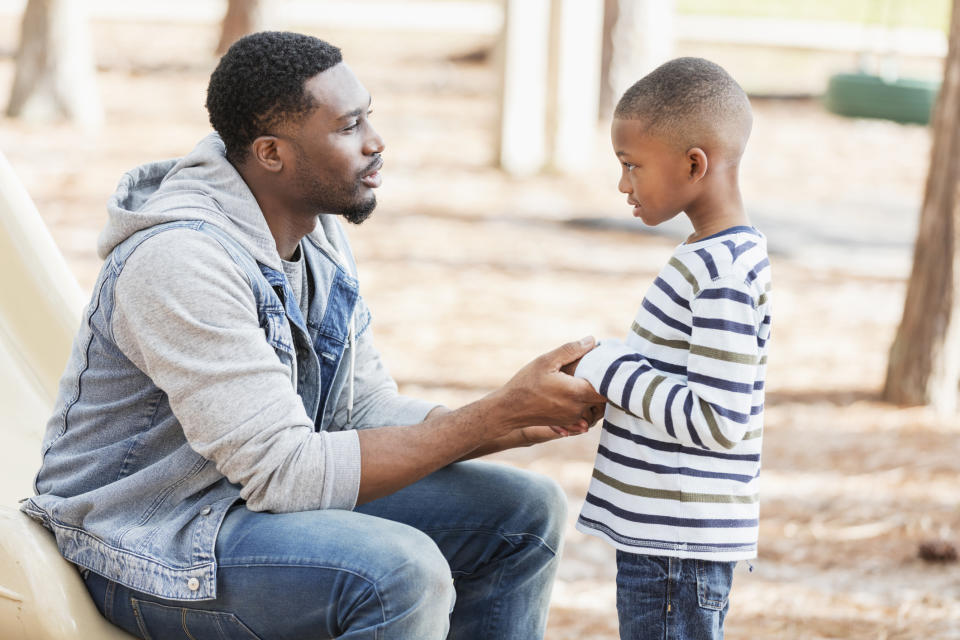
As for when to begin having these conversations with your children, Cleone said that around 3 or 4 years old, you can start teaching your child about body safety, but also take clues based on your child's questions. She said, "Young children need to know what is private about their own bodies and other people's bodies. This doesn't have to be a conversation about genitalia, yet; you can use photos of people in bathing suits to identify private areas."
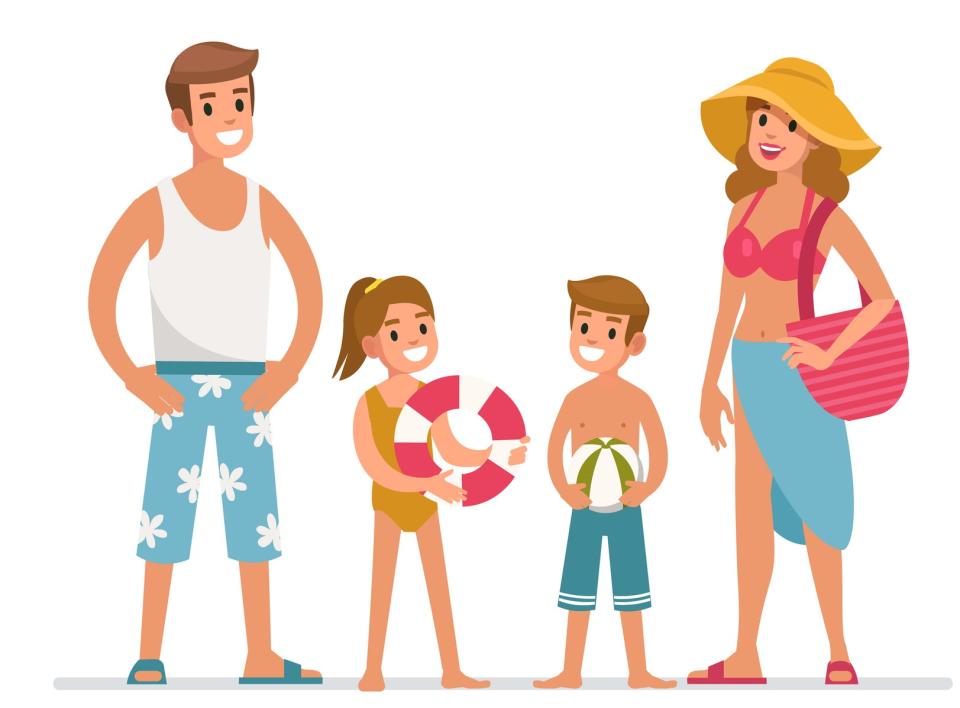
She continued, "Take clues from your child based on their questions about when they’re ready for more information. Some kids will be ready sooner than other kids."
Amelia reiterated to BuzzFeed that her mom normalized these conversations by making them recurring and an open space for questions, which, as Cleone mentioned, would often guide what they would talk about. Amelia said, "Kids are very curious... I don’t remember thinking it was weird or scary to have these conversations, because it was normal at our house."
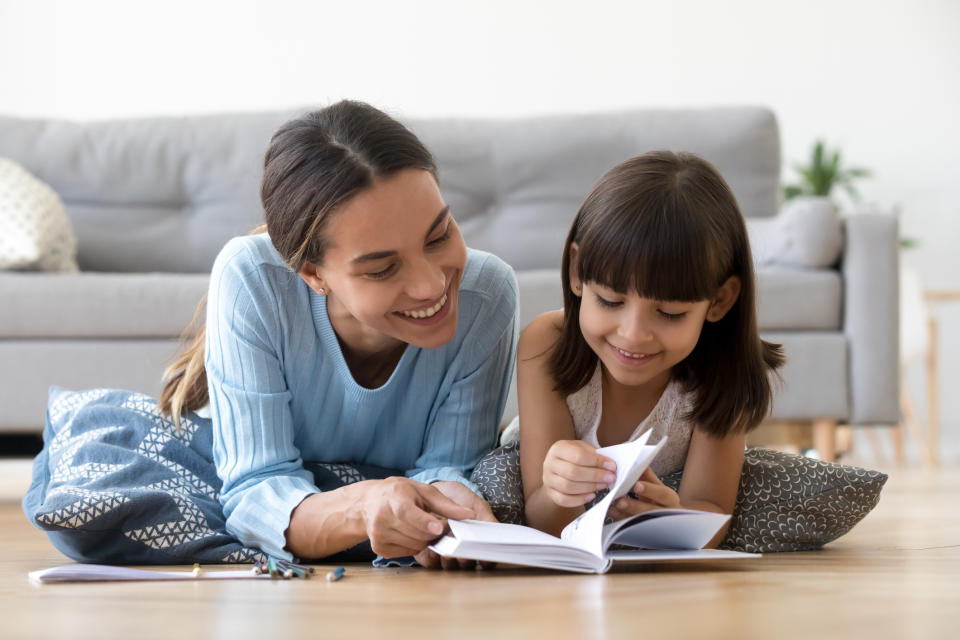
And while Amelia said these conversations didn't necessarily become more normalized with her peers, she said they did help her understand "dangerous secrets," and to always speak up if she ever heard of any sexual abuse.
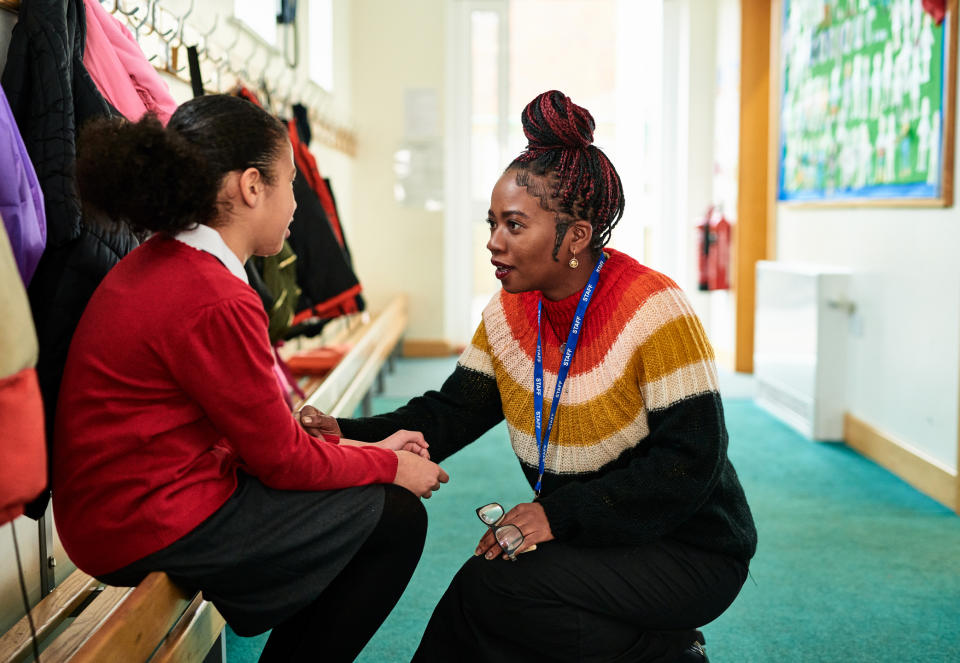
She told BuzzFeed, "My mom told me that none of my friends or classmates needed to hear about sex or abuse from me, and these were conversations for parents to have with their kids. But she also taught me to speak up and tell her if someone ever confided in me about their abuse. She made it clear that she would help them and it was important not to keep dangerous secrets."
Cleone added that while Amelia summed up a lot of their early conversations in just a few minutes, she wants to remind people that those conversations happened over many years.
She said, "Our discussions were often guided by her questions, and I think the most important thing was answering honestly and making sure she felt comfortable discussing everything with me."
If you're looking for more resources on the topic, Cleone said the Child Advocacy Center is a great place to start. She also said the organization Darkness to Light has statistics about CSA that parents can learn from, like how often abuse happens, who's most likely to be an abuser, and when and where it's most common.
She added, "Also, it’s always a good idea to ask your local librarian about current books and resources. They’ll know what’s age and developmentally appropriate for your kids." Lastly, if you're concerned about a sexual abuse situation with a child, Cleone said, "Call your local Child Advocacy Center. They will help you assess and navigate the situation, including reporting and therapy."
Amelia had just one last thing to add: "I'm so grateful to my mom — for having these conversations with me, for being a wonderful parent, for helping so many children and truly seeing them when other people would rather look away, and for testifying against so many abusers over the years."
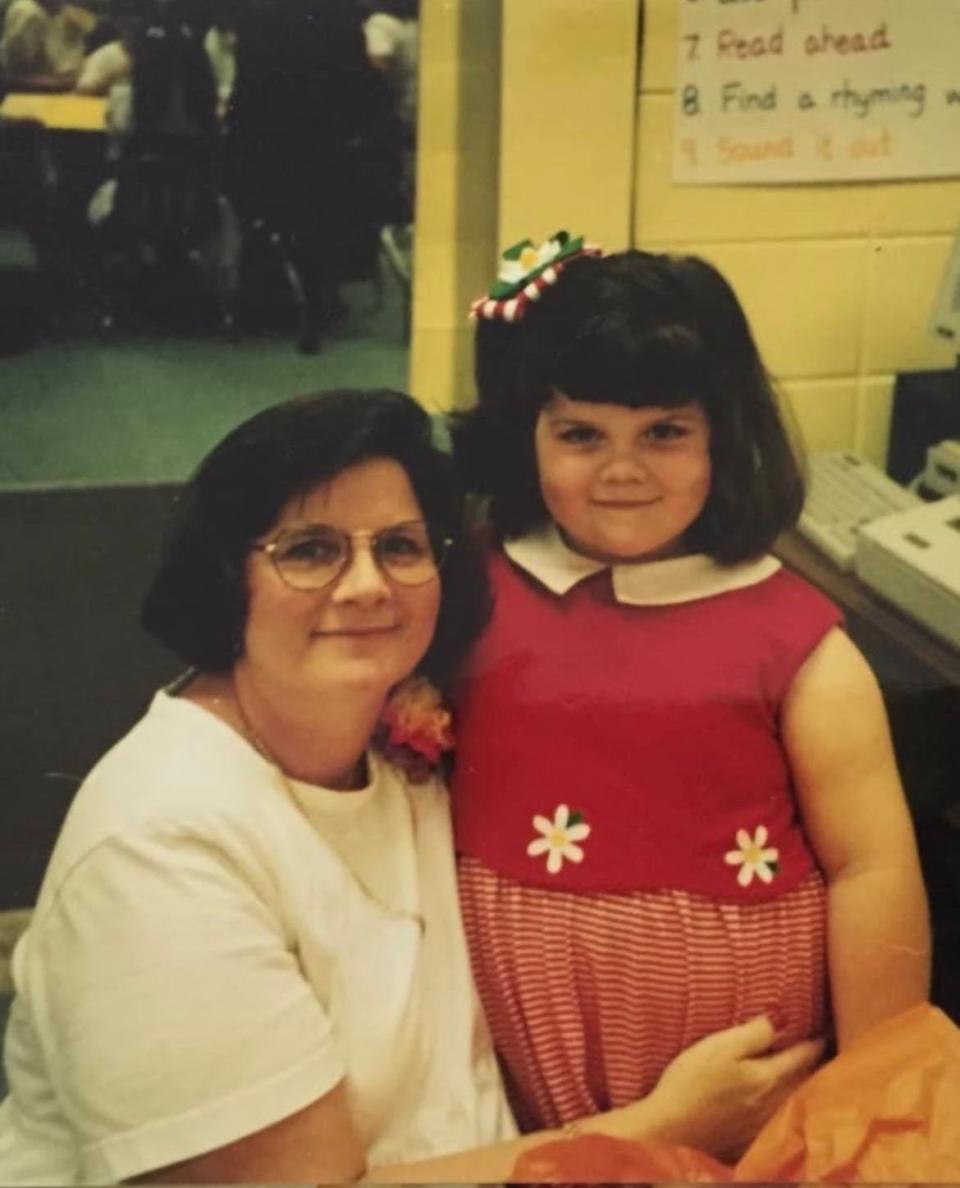
If you or someone you know has experienced sexual assault, you can call the National Sexual Assault Hotline at 1-800-656-HOPE (4673), which routes the caller to their nearest sexual assault service provider. You can also search for your local center here. If you are concerned that a child is experiencing or may be in danger of abuse, you can call or text the National Child Abuse Hotline at 1-800-422-4453 (4.A.CHILD); service can be provided in over 140 languages.
Per Cleone's advice: You can also find your local Child Advocacy Center here, who can help you report the situation and find resources, including therapy.

